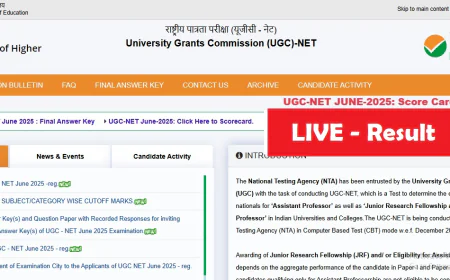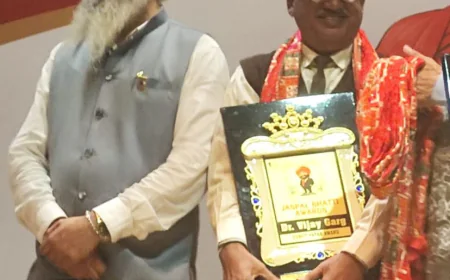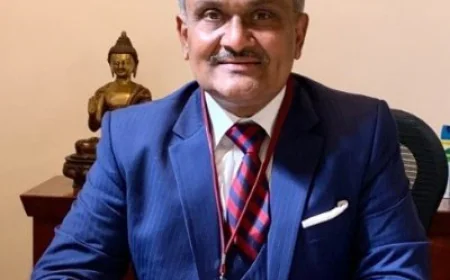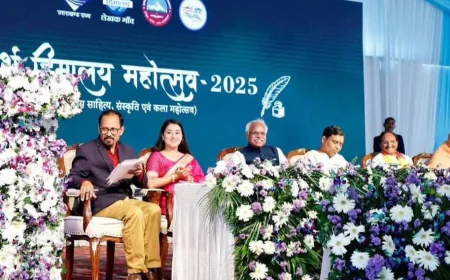Living Beyond 100 : What Science Says About Longevity and Youthfulness

Living Beyond 100 : What Science Says About Longevity and Youthfulness
The quest for a longer, healthier, and more youthful life—often called extending "healthspan" in addition to "lifespan"—is a central focus of modern science. Research into centenarians (people who live to 100 or beyond) and anti-aging mechanisms points to a powerful combination of lifestyle choices and exciting medical breakthroughs on the horizon. I. The Science-Backed Pillars of Longevity While genetics play a role, centenarian studies, particularly those focusing on "Blue Zones" (regions where people live remarkably long lives), consistently highlight several key lifestyle factors that science supports:
? Diet and Metabolic Health * Plant-Forward Eating: Diets rich in fruits, vegetables, whole grains, and legumes are strongly associated with lower risks of chronic diseases like cardiovascular disease, diabetes, and dementia. Centenarian diets often resemble the Mediterranean diet and feature high consumption of plant-based foods. * Calorie Awareness: The traditional Okinawan practice of "Hara hachi bu" (eating until 80% full) suggests that moderate eating habits, avoiding overindulgence, are key to metabolic health and longevity. * Specific Longevity Foods: Studies highlight the benefits of nuts (for healthy fats and antioxidants) and coffee (linked to improved physical resilience and reduced frailty). * Intermittent Fasting (Caloric Restriction Mimetics): Calorie restriction has been shown to extend life in many model organisms. While strict calorie restriction is difficult for humans, researchers are exploring intermittent fasting and drugs (like Rapamycin and Metformin) that may mimic its cellular benefits.
?♀️ Movement and Physical Activity * Move Naturally, Sit Less: Instead of intense, structured workouts, centenarians often engage in low-intensity, consistent movement throughout the day (gardening, walking, household chores). * The Benefits of Exercise: Regular, moderate-intensity exercise (like a brisk 30-minute walk five days a week) is one of the most evidence-based ways to reduce the risk of major age-related diseases. * Muscle is Key: Maintaining muscle mass through strength training becomes non-negotiable as we age, as it directly combats sarcopenia (age-related muscle loss) and frailty.
? Sleep and Stress Management * Prioritize Quality Sleep: Aiming for seven hours of quality sleep per night is vital. Poor sleep impacts the immune system, stress hormones, and cardiometabolic functions. * Manage Stress (Downshifting): Centenarians often have daily routines to relieve stress, such as social rituals, a sense of purpose, or spiritual practices. Chronic stress is linked to chronic inflammation, a major driver of aging.
? Social Connections and Purpose * Strong Social Networks: Loneliness and isolation have been shown to be as detrimental to health as smoking 15 cigarettes a day. Maintaining deep connections with family and community is a powerful longevity factor. * A Sense of Purpose: Having a reason to get up in the morning ("Ikigai" in Japanese culture) is a common trait among long-lived individuals and contributes to better mental and physical health. II. The Future of Anti-Aging Science Scientists are delving into the cellular and molecular mechanisms of aging to develop therapies that target aging directly, aiming to keep us looking and feeling younger for longer.
? Molecular and Cellular Interventions * NAD+ Boosters: Nicotinamide adenine dinucleotide (\text{NAD}^+) is a molecule vital for cellular energy and repair, and its levels naturally decline with age. Supplements designed to boost \text{NAD}^+ levels (like \text{NMN} or \text{NR}) are a major area of research, though human clinical evidence is still in early stages. * Senolytic Drugs: These compounds are designed to target and clear senescent ("zombie") cells—cells that have stopped dividing but refuse to die and instead release pro-inflammatory molecules that accelerate aging and disease. Removing these cells in animal models has shown dramatic improvements in healthspan. * Telomere Extension: Telomeres are the protective caps on the ends of chromosomes that shorten with each cell division. Telomere shortening is considered a primary driver of cellular aging. Research into extending telomeres could be a way to delay cellular senescence.
? Advanced Medical Technologies * Stem Cell Therapy: Utilizing the body's natural regenerative abilities, stem cell therapy aims to replace damaged or lost cells, potentially rejuvenating tissues and organs. * Genetic Engineering: Techniques like \text{CRISPR} are being explored to manipulate genes that control the aging process, offering a way to directly slow or reverse biological aging. * Epigenetic Reprogramming: This involves changing the "expression" of genes without altering the DNA sequence itself. Scientists are researching ways to "reset" the epigenetic clock of cells, effectively reversing their biological age. Conclusion: The Path to a Centenarian Life While the scientific quest for a "longevity pill" continues, the current, evidence-based consensus is clear: The most powerful tools for living to 100 and beyond are in your hands today. By embracing a lifestyle that optimizes diet, movement, sleep, and social well-being, you can significantly enhance your healthspan, maximizing the quality and length of your life. The emerging breakthroughs in cellular and genetic engineering promise to add further years of vitality, but they will likely serve as powerful additions to an already healthy foundation.
Vijay Garg Retired Principal Educational columnist Eminent Educationist street kour Chand MHR Malout Punjab










































